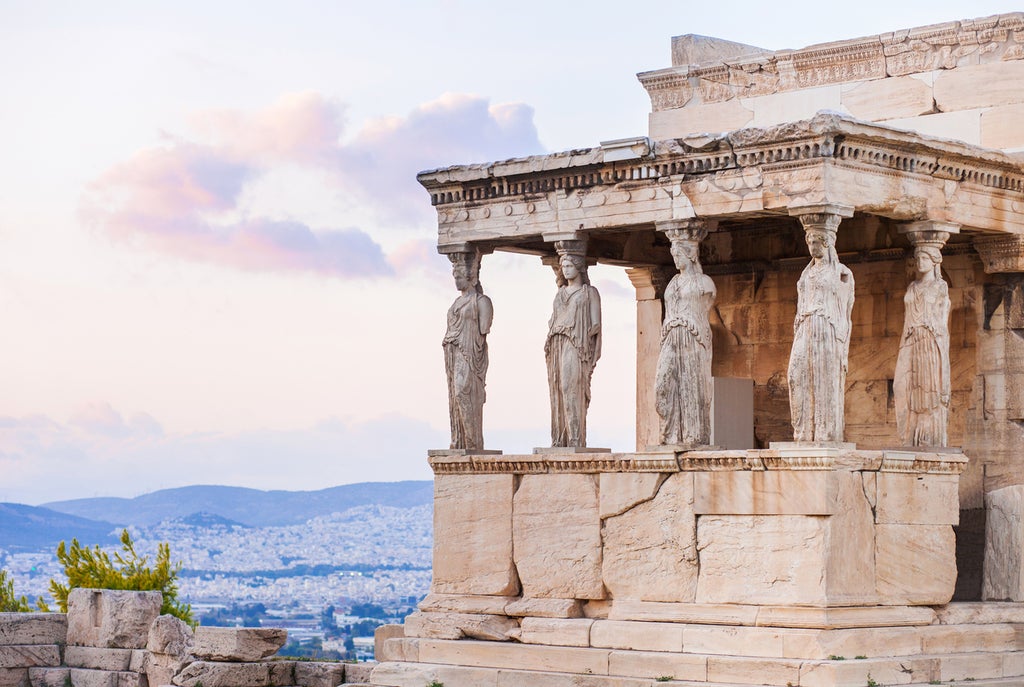Greece has become the latest country to tighten national rules and restrictions again, in the face of spiking Covid cases.
The country reported 7,317 new infections and 63 deaths on 18 November alone.
The new restrictions mainly focus on unvaccinated people, following the example of Germany and Austria, who have imposed different rules for vaccinated and unvaccinated people in the past few months.
But are tourists still allowed to enter Greece, and what is the situation on the ground?
Here’s what we know so far.
What are the latest rules?
On 19 November, Greek prime minister Kyriakos Mitsotakis announced that, from Monday 22 November, people who cannot show proof of full vaccination will be barred from most indoor spaces, including cinemas, theatres, museums and gyms – even if they test negative for Covid-19.
This was already the case for restaurants, bars and cafes.
One notable exception is churches, where people can show a negative test result to enter.
Greece follows Austria, Germany, Slovakia and the Czech Republic in limiting access for unvaccinated citizens and tourists, following huge spikes in coronavirus cases.
Other rules include the implementation of staggered working hours for locals to avoid overcrowding at rush hour and in offices, and more enforcement of rules, with authorities carrying out regular checks.
The main aim of the boost in restrictions is to take pressure off the country’s hospitals, but there is also an element of encouraging the population to get vaccinated.
“This is indeed a pandemic of the unvaccinated,” said Mr Mitsotakis.
“Greece is mourning unnecessary losses because it simply does not have the vaccination rates of other European countries.”
The country has seen a slow vaccination rollout, with only 62 per cent of the population jabbed so far.
The PM also announced that proof of vaccination for those aged 60 and above will only be valid for seven months, in a bid to encourage older people to take up a booster jab.
How will this affect tourists visiting the country?
Greece is one of the countries that doesn’t insist on full vaccination for incoming tourists – instead, you can provide proof of a negative test or proof of recovery (in addition to needing to fill in a passenger locator form).
However, once there, unvaccinated tourists will have to abide by the same rules as unvaccinated Greek residents, and will be unable to enter the above venues such as restaurants and museums.
Meanwhile, vaccinated British tourists will be able to use their NHS Covid Pass to enter the indoor spaces, following its approval by the EU on 29 October.
Regarding the booster-jab status for over 60s, from today booster jabs will begin to be displayed on the NHS Covid pass, so you will be deemed fully vaccinated over 60 as long as your booster was given within the past seven months.
How long will the new rules last?
This appears to be an indefinite rule change for Greece, in a bid to improve vaccine take-up and encourage booster jabs.
Mr Mitsotakis also said he would be proposing the measure of putting a time limit on proof of vaccination to EU authorities as a continent-wide approach.
France made a similar move last week in order to encourage over 65s to get their booster shots.



More Stories
Everything you need to know about July and August rail industrial action
‘It’s cancerous’: How seaside towns fight back against second home owners
EasyJet flight diverted after passenger medical emergency on board